Nirvana, an iconic American rock band born in 1987, boarded on a rowdy yet glorious journey that redefined the very essence of rock music. They are one of the biggest and greatest rock bands in the history. Their influence in the music industry was so impactful that their music still strikes a chord today.
Their 7 years of career were so glorious with millions of sold-out records that this short period didn’t matter much. They introduced grunge rock and brought it into the spotlight. Besides punk, metal, pop rock, etc. genres have a fair share of sneak peek in their albums and became worldwide as Nirvana rock band.
Birth of Nirvana Rock Band
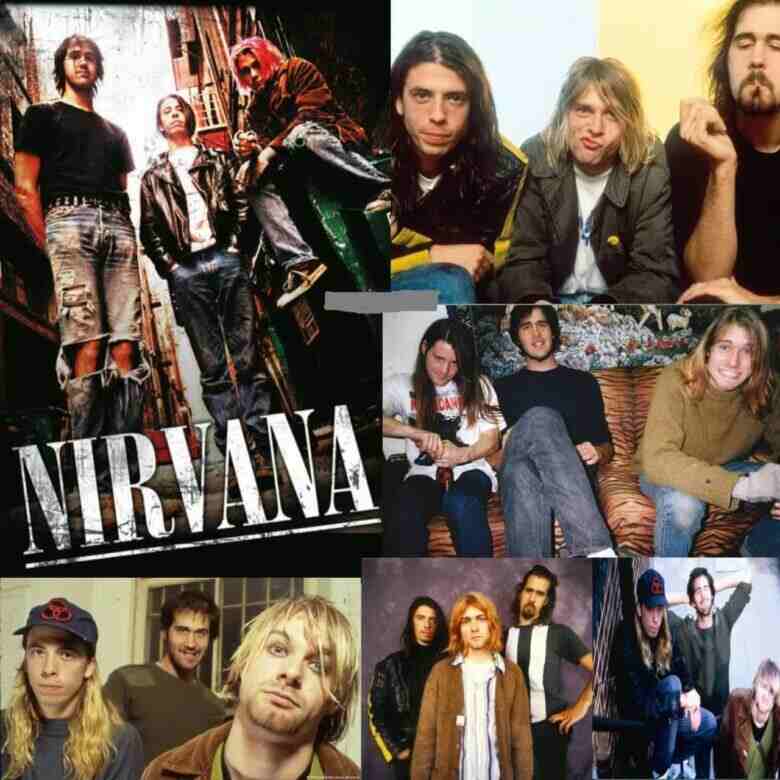
Nirvana, the iconic band that would go on for generations, was founded in 1987 in Aberdeen, Washington. The band’s founding members include Kurt Cobain, a talented singer-songwriter and guitarist, Krist Novoselic, a skilled bassist, and later, Dave Grohl, who became their legendary drummer.
They started their journey in the underground punk scene, where they honed their distinctive sound, blending punk aggression with melodic sensibilities. Their breakthrough came with the release of their second album “Nevermind”, in 1991, featuring the smash hit “Smells Like Teen Spirit”. This album catapulted Nirvana to worldwide fame and marked the grunge movement’s mainstream emergence.
Finalizing The Name
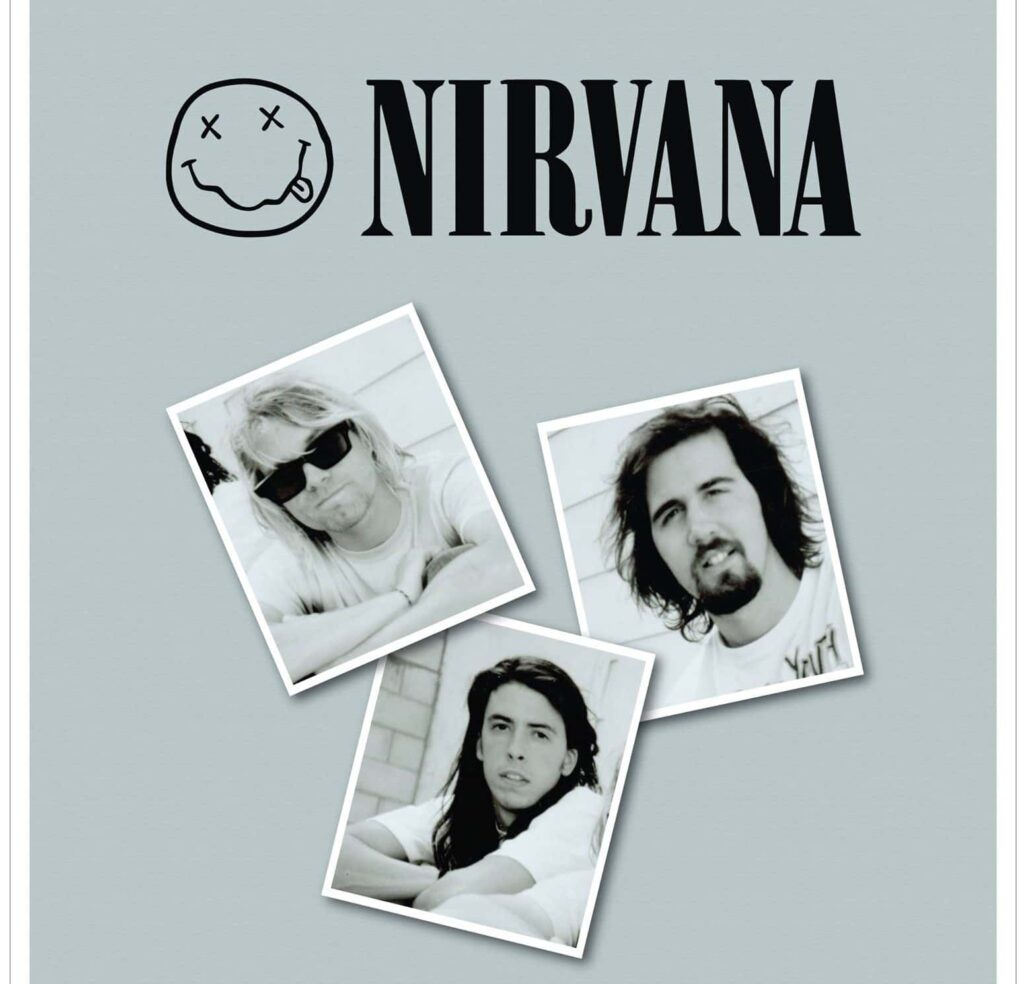
The name “Nirvana” for the iconic band was chosen by its frontman and songwriter, Kurt Cobain, who had a penchant for profound and symbolic meanings. Cobain was inspired by a variety of sources when selecting the name.
Firstly, he was intrigued by the concept of spiritual enlightenment in Eastern Philosophy, notably Buddhism, where “Nirvana” represents a state of ultimate liberation and transcendence from suffering. This idea resonated with Cobain’s desire for authenticity and escape from personal struggles. Additionally, he was influenced by the 1960s garage rock band “The Wipers, “who had a song titled “Return of the Rat” that featured the line “Like the Rat That You Are, I’m Sane Like, Paul McCartney”.
Cobain appreciated the juxtaposition of the sacred and profane, so he adopted “Nirvana” as the band’s name, adding depth and ambiguity to their identity. This name would go on to symbolize both the band’s spiritual aspirations and their music’s raw, unfiltered nature.
Debut Statement: Bleach
“Bleach” stands as Nirvana’s debut album, released in 1989 under the independent label Sub Pop Records. This album showcased the band’s raw and gritty sound, firmly planting their roots in the Seattle grunge scene. Recorded in just a few days on a limited budget, “Bleach” featured Kurt Cobain’s distinctive songwriting and unique guitar style, Krist Novoselic’s heavy bass lines, and Chad Channing’s drumming.
While “Bleach” did not achieve the commercial success of their later albums, it garnered significant attention within the underground music scene and helped establish Nirvana as a promising act. The album included tracks like “About a Girl” and “Blew”, which hinted at the melodic sensibilities that would later become a hallmark of their music.
Although it wasn’t an immediate commercial success, “Bleach” laid the foundation for Nirvana’s future groundbreaking work and made a promise for new upcoming hits.
Crafting “Nevermind”, Revolutionizing Rock
“Nevermind” is often regarded as the magnum opus of Nirvana rock band, released in 1991. This masterpiece, produced by Butch Vig, marked a pivotal moment in music history and catapulted Nirvana to worldwide stardom. Led by the anthem song “Smells Like Teen Spirit”, “Nevermind” signaled the arrival of grunge music as a dominant force in the early 1990s.
The album’s raw intensity, coupled with Kurt Cobain’s introspective and often cryptic lyrics, resonated with a disenchanted youth culture. Songs like “In Bloom”, “Come as You Are”, and “Lithium” further showcased the band’s ability to combine catchy melodies with Cobain’s signature guitar riffs.
“Nevermind” disrupted the prevailing music scene, dethroning pop, and hair metal from the charts, and its enduring influence continues to shape alternative and rock music to this day, cementing its place as an iconic and innovative album.
The Troubled Genius
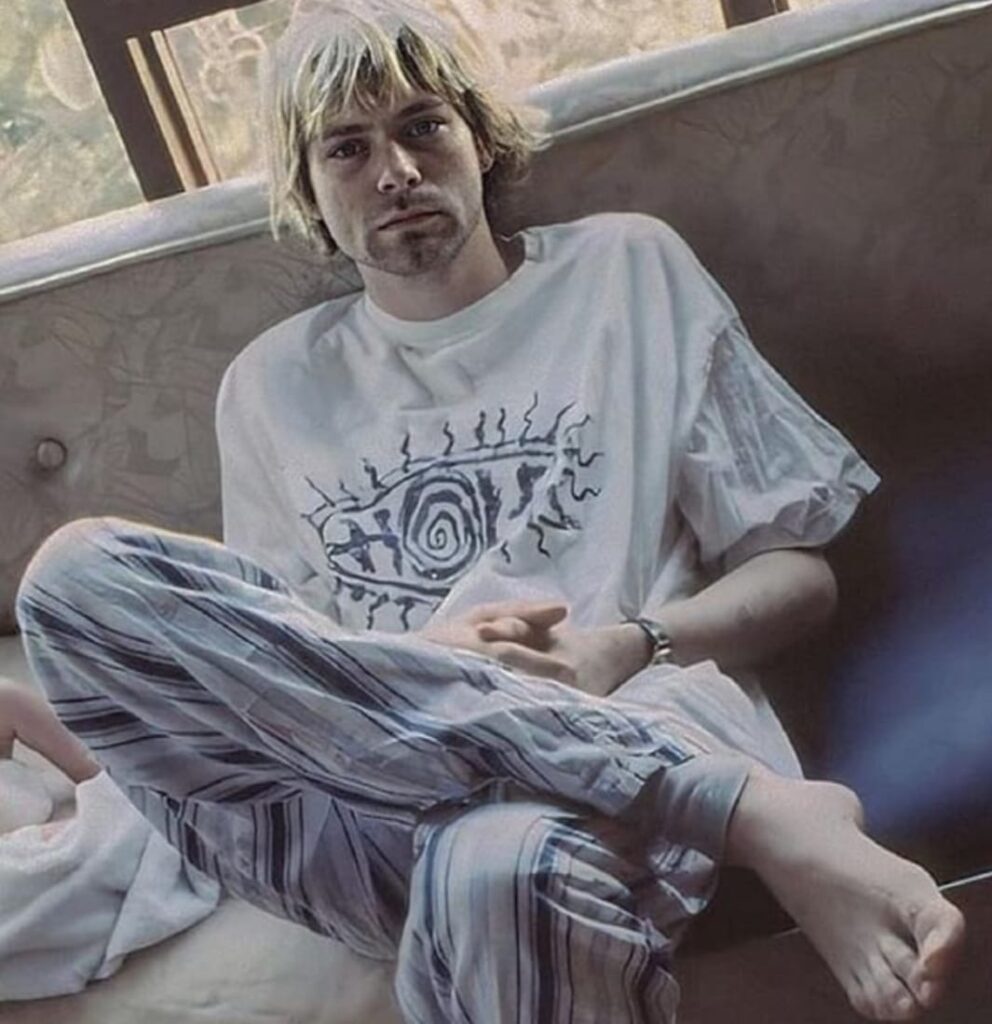
Kurt Cobain, the mysterious and influential founder of Nirvana rock band, was born on February 20, 1967, in Aberdeen, Washington. Cobain’s profound impact on the music world stemmed from his innovative songwriting, haunting vocals, and distinctive guitar style. He formed Nirvana in 1987, along with Krist and Grohl, and together they crafted a genre-defining sound that blended punk aggression with melodic hooks.
What set Cobain apart was not just his haunting vocals and raw, emotionally charged guitar work but also his ability to tap into the spirit of a generation. His contribution to the albums like “Nevermind”, “Bleach” etc. was phenomenal, which is an understatement.
However, Cobain’s fame came at a steep personal cost. He grappled with addiction, mental health issues, and the pressures of fame, which ultimately led to his tragic suicide in 1994. His untimely death shook the music world to its core, raising critical questions about the toll of artistic genius and the need for better mental health support in the industry.
Kurt Cobain’s legacy spreads far beyond his music. His story serves as an effective reminder of the challenges faced by creative individuals and the importance of addressing mental health in the pursuit of artistic expression.
The Role of the Tremendous Bassist
Krist Novoselic, the co-founder and bassist of Nirvana, played a multifaceted and indispensable role in the band’s ascent to legendary status. Born on May 16, 1965, Krist shared a hometown with Kurt Cobain, forging a profound connection that fueled their musical partnership. Novoselic’s bass guitar work was the cornerstone of Nirvana’s distinctive sound, providing a deep, resonant foundation that seamlessly blended punk’s aggression with melodic nuances. His basslines not only underpinned that band’s music but also created an aura that captivated listeners.
His versatility extended beyond the stage, he was an astute manager of the band’s affairs, handling logistical aspects during their early days and contributing to the band’s cohesion. Beyond his musical and managerial talents, Krist’s towering height and stage presence added to Nirvana’s visual impact. His partnership with Cobain and later drummer Grohl was the driving force behind the band’s impressive rise. Together, they crafted songs that spoke to a generation, capturing the essence of youthful rebellion and cynicism.
Behind the Scenes
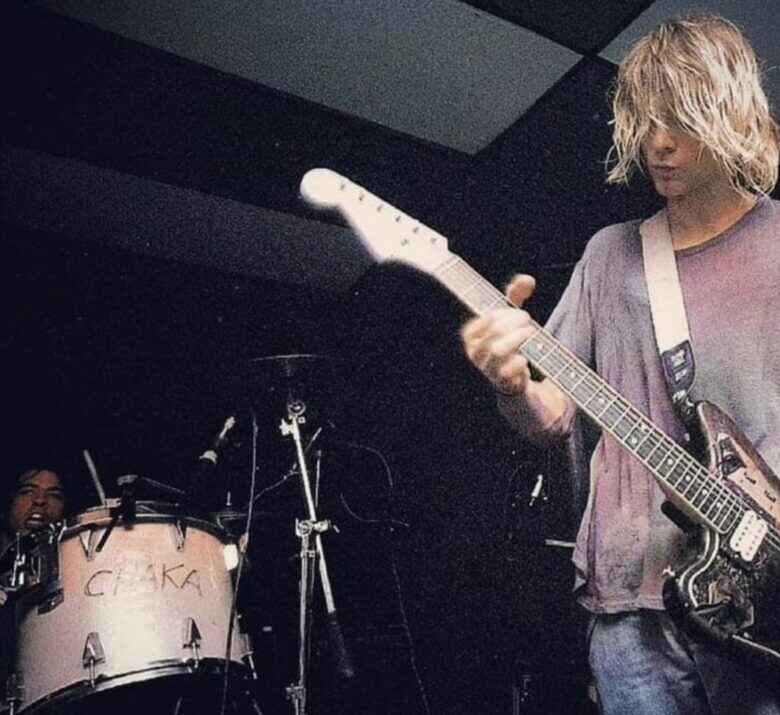
Collaborators and catalysts have an undeniable contribution to their success. Butch Vig, who re-recorded a Nirvana demo for “Nevermind” in 1995, and Chad Channing, the drummer who briefly filled Dave Grohl’s shoes, offered unique insights into the band’s inner workings. The record label war that preceded their signing with DGC, a Geffen Records subsidiary, marked a turning point in Nirvana’s journey.
Moreover, the recording process at Sound City in Van Nuys, California, illuminated the dedication of those involved. David Geffen’s prescience regarding the band’s essence set the stage for a phenomenon that defied convention.
The Soundtrack of a Generation
“Smells Like Teen Spirit” is Nirvana’s defining anthem, etching an indelible mark not only on the band’s legacy but also within the rock music culture. Released as the lead single from their 1991 album “Nevermind”, the track instantly captured the Disillusionment of a generation. With its distinctive grunge guitar riff and a chorus that demanded attention, the song catapulted Nirvana into the mainstream.
Penned by Kurt Cobain, the lyrics added a layer of mystery, while the music video, directed by Samuel Bayer, became an iconic part of pop culture. “Smells Like Teen Spirit” disrupted the pop and hair metal reign on the charts, heralding the rise of grunge. Its raw power and cultural resonance make it a timeless, essential piece of rock history, forever synonymous with the spirit of rebellion.
Unpredictable Trajectory
Nirvana’s journey was a whirlwind of unpredictability and non-conformity. They made headlines when they were kicked out of their own record-release party for consuming an entire whiskey bottle in a photo booth, a typical act of rebellion. Another iconic moment came when they chose to perform instead of attending a Guns N’ Roses concert, cementing their dedication to their music above all else.
Their dramatic rise reached its peak with a glorious homecoming show in Seattle, a milestone immortalized in video and album formats. Following this, Nirvana boarded on a grueling European tour, showcasing their firm work ethic and commitment to sharing their music with the world.
Although their journey was marked by unpredictability, it reflected their unapologetic approach to life and music. Their legacy lives on their music and the stories of boldness, missed opportunities, and determination.
Influence on the Grunge Scene
Nirvana’s indelible influence on the grunge scene is nothing short of revolutionary. Hailing from the rainy streets of Seattle in the late 1980s, the trio of Kurt Cobain, Krist Novoselic, and Dave Grohl ignited a musical revolution that surpassed genres. Their hallmark was their ability to meld punk’s raw intensity with melodic finesse, striking a chord with a disillusioned generation weary of the extravagant excesses of ‘80s hair metal.
Their pivotal album, “Nevermind”, released in 1991, was nothing short of a cultural earthquake. Propelled by the anthemic “Smells Like Teen Spirit”, it not only stormed the charts but also propelled grunge into the mainstream consciousness. The impact was seismic, opening doors for fellow Seattle acts like Pearl Jam, Soundgarden, and Alice in Chains, all of whom drew inspiration from Nirvana’s unfiltered honesty and experimentation. Tragically, Kurt Cobain’s untimely demise marked the end of Nirvana, but their lasting influence bears.
From Nirvana to Foo Fighters
The transition from Nirvana, the pioneering rock band, to Foo Fighters, another musical powerhouse, represents a unique and significant chapter in the history of rock music. Following Kurt Cobain’s tragic death in 1994, Nirvana disbanded, leaving Dave Grohl, their drummer, at a crossroads. Grohl, determined to continue his musical journey, began recording his own songs, taking on the roles of guitarist, singer, and songwriter.
This newfound creative outlet gave birth to Foo Fighters, a band that would go on to achieve remarkable success. With their self-titled debut album released in 1995, Foo Fighters immediately garnered attention for their melodic rock sound and Grohl’s songwriting skills. Over the years, they evolved and expanded their palette, becoming a rock institution in their own right, releasing multiple chart-topping albums and earning numerous awards.
End of an Era
Nirvana rock band, the last great punk rock icon, achieved legendary global fame through genuine talent and a profound connection with fans, in contrast to today’s corporate-driven music industry. Their music, while containing catchy pop elements, transcends traditional pop boundaries, maintaining a timeless appeal.
Despite my own regret for missing their live performances, platforms like YouTube offer a glimpse into their legendary shows. Even two decades after their last album, Nirvana’s music defies aging, unlike genres such as hair metal, boy bands, or West Coast gangsta rap. Their songs, like “Radio Friendly Unit Shifter” , could still dominate the charts today, Proving their everlasting relevance.
FAQ:
What genre is nirvana?
Nirvana is primarily associated with the alternative rock and grunge genres, known for their raw, angst-filled sound and influential role in 1990.
What genre of music is nirvana?
Their music can be categorized as grunge, a subgenre of alternative rock, characterized by its raw, distorted sound and emotionally charged lyrics.
Who wrote Nirvana songs?
Their songs were written by the band’s frontman, Kurt Cobain, who was the primary songwriter and lyricist.
How did Nirvana get its name?
Nirvana got its name from the frontman, Kurt Cobain. He chose the name because it represents a state of perfect happiness or liberation from suffering.
Who was Nirvana’s drummer
Nirvana’s drummer was Dave Grohl. He joined the band in 1990 and played with them until their disbandment following Kurt Cobain’s death in 1994.



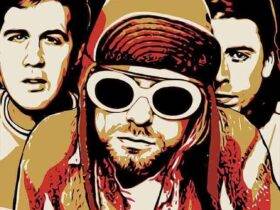




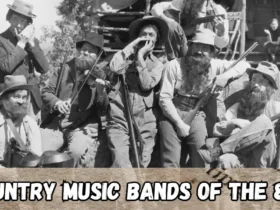


Leave a Reply